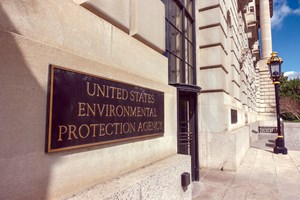EPA, Navajo Tribal Utility agree to $100M wastewater treatment, sewer piping plan
(UI) – The U.S. Environmental Protection Agency (EPA) announced a settlement with the Navajo Tribal Utility Authority (NTUA) to improve wastewater treatment at its Chinle, Kayenta, and Tuba City facilities in Arizona. NTUA has agreed to a Partial Consent Decree that requires wastewater treatment upgrades that will total approximately $100 million and aims to improve compliance with the facilities’ Clean Water Act permits. These upgrades will impact approximately 20,000 individuals across four communities within Navajo Nation.

Based on findings from EPA inspections and reports submitted by NTUA, the U.S. states in their complaint that NTUA violated its Clean Water Act permits by regularly discharging wastewater that had not been treated to the required permit standards, and by failing to properly operate and maintain the facilities’ sewer systems to prevent sewage spills.
The Partial Consent Decree requires NTUA to improve the performance of its existing treatment plants in the short term, and to construct new treatment plants over the longer term. NTUA will seek to relocate the new Tuba City facility from its current footprint to mitigate risks associated with the Moenkopi Wash’s continued erosion towards the facility and to decrease the chance of a catastrophic release of sewage.
In addition, NTUA must improve its operation and maintenance of the facilities and study its sewer system piping to identify all defects and plan for their repair. The U.S. and NTUA will negotiate the terms of the sewer system repair plan later, and any agreement will be captured in a subsequent, Final Consent Decree. The settlement also aims to ensure the affected communities have a voice in the improvement process by requiring NTUA to seek public comments on various aspects of its work plans.
“The Navajo Tribal Utility Authority unlawfully discharged untreated sewage from three of its wastewater facilities,” said David M. Uhlmann, EPA Assistant Administrator for the Office of Enforcement and Compliance Assurance. “This partial settlement will result in cleaner and healthier water for tribal communities within the Navajo Nation. They deserve nothing less.”
Improving the quality of water NTUA discharges from its facilities and minimizing sewage spills will directly benefit the environment and protect public health. Spills and overflows from sewer pipes can pose a public health risk by potentially exposing people to untreated sewage, which may contain viruses, bacteria, or parasites that can make people ill.
To support its wastewater treatment programs, NTUA receives grant funding from various federal agencies—including the EPA, the Indian Health Service, and the Department of Agriculture—and from recent federal appropriations including the Bipartisan Infrastructure Law and the American Rescue Plan Act. Federal grants from these and other sources are projected to cover most of the $100 million cost expected under the Partial Consent Decree.
This matter is being handled by the U.S. Department of Justice, in conjunction with the EPA.
Related News
From Archive

- Glenfarne Alaska LNG targets late-2026 construction start for 807-mile pipeline project
- U.S. water reuse boom to fuel $47 billion in infrastructure spending through 2035
- $2.3 billion approved to construct 236-mile Texas-to-Gulf gas pipeline
- Major water pipe break in Puerto Rico hits over 165,000 customers
- Potomac River Tunnel project enters construction phase beneath Washington, D.C.
- Pennsylvania American Water launches interactive map to identify, replace lead water service lines
- Trump's tariffs drive $33 million cost increase for Cincinnati sewer project
- Utah city launches historic $70 million tunnel project using box jacking under active rail line
- Tulsa residents warned after sewer lines damaged by boring work
- Fatal trench collapse halts sewer construction in Massachusetts; two workers hospitalized



Comments